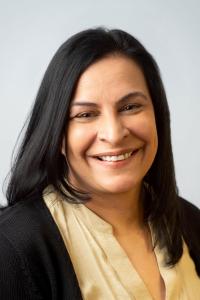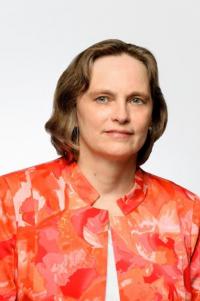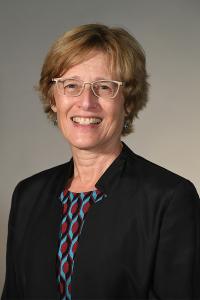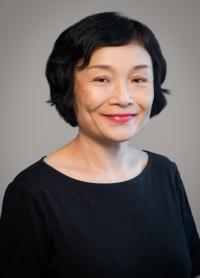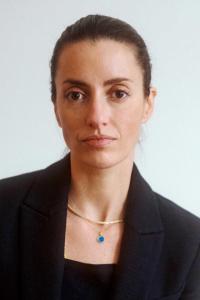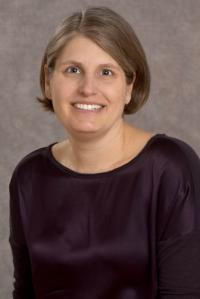Hematology, Oncology, and Stem Cell Transplantation
Division Chief
Overview
The Division of Pediatric Hematology, Oncology, and Stem Cell Transplantation provides compassionate, state-of-the-art care for children with cancer and blood disorders. Our division is distinctive for cutting-edge, extramurally supported research. We aim to provide the most comprehensive training available to the next generation of leaders in pediatric hematology, oncology, and stem cell transplantation.
Clinical Services
We are home to the largest and most comprehensive pediatric oncology program in the tristate area, and one of the largest centers in the nation for stem cell and bone marrow transplantation. Our programs include:
- Center for Comprehensive Wellness
- Center for Histiocytic Disorders
- Center for Survivor Wellness
- Child and Adolescent Rare Skin Cancer Center
- Palliative Care Program
- Pediatric Cancer Foundation Developmental Therapeutics Program
- Pediatric Hematology
- Pediatric Liver Cancer Program
- Precision in Pediatric Sequencing (PIPseq) Program
- Sickle Cell Disease
- Stem Cell Transplant Program
- Vascular Anomalies Program
Research
Faculty members in the division conduct basic research on the causes of leukemia and brain tumors, and have identified new genetic changes resulting in cancer formation. We are also investigating the mechanisms that enable leukemia cells to evade the immune system in the bone marrow. Together these studies help us understand the causes of childhood cancer and point us to new ways to diagnose and treat these diseases.
Members of our translational research division are identifying new treatment options for childhood cancers and blood disorders, and we have advanced several new therapeutic approaches for pediatric leukemia, brain tumors, sarcomas, and neuroblastoma from our research labs into the clinic. We also have active studies aimed at improving the treatment of childhood blood disorders, including bleeding disorders, iron deficiency anemia, and sickle cell disease.
Through our clinical research program we maintain a large number of clinical trials that provide bone marrow transplantation for children with cancer and blood disorders. We are studying approaches that may help improve control of symptoms in children with sickle cell disease, as well as definitive methods to cure the disease. Our clinical research program brings the latest therapies to every child with cancer that we treat, and our precision medicine program allows us to tailor therapies based on state-of-the-art technologies. We also have active studies focused on decreasing the side effects of treatment.
Education
We provide clinical training and research opportunities to medical students and residents. Our three-year Oncology, Hematology, and Stem Cell Transplant Fellowship Program has both a clinical and research focus.
In addition to our educational programs for medical students, residents, and fellows, we emphasize the need for trainees and staff to stay up-to-date on the advances in our field. We offer the following educational opportunities on-site for all of our staff members:
- Twice-weekly fellows lectures that cover a wide range of topics of clinically oriented themes and disease specific discussions
- Weekly division-wide lecture series featuring national and international speakers who discuss their work and exciting advances in the field
- Weekly conferences on hematopathology, precision medicine, and hematology, oncology, and stem cell transplants
- Weekly multidisciplinary tumor board for case presentations and management discussions of complex patient issues featuring colleagues from pathology, diagnostic radiology, surgery, and radiation oncology
- Weekly didactic lecture series for nurses—sessions over lunch for inpatient nurses and over tea for outpatient nurses
- Monthly multidisciplinary conference on morbidity and mortality
- Monthly fellows journal club
Global Health
Dr. Elena Ladas heads the International Initiative for Pediatrics and Nutrition (IIPAN). IIPAN is a collaborative network of hospitals, scientists, clinicians, and clinical investigators in Brazil, Guatemala, India, Nicaragua, and South Africa working in nutritional research and clinical care in pediatric cancer centers located in low- and middle-income countries (LMICs). IIPAN’s mission is to substantially increase the global success rate of pediatric cancer treatment by improving the education and delivery of clinical nutritional care to children with cancer.
History
Founded in 1959 by James Wolff, MD, the Division is one of the oldest and most comprehensive centers in the country focused on children with cancer and blood disorders. Dr. Wolff, who trained under Drs. Sidney Farber and Louis Diamond, the “fathers of pediatric hematology-oncology,” made a number of contributions to the field including the recognition and management of Rh disease in the newborn, thalassemia major, Wilms tumor, and acute lymphoblastic leukemia. Through his efforts Columbia became a charter member of the Children’s Cancer Group—today’s Children’s Oncology Group, the largest cooperative research consortium in the world.
In 1979 Dr. Wolff was succeeded by Dr. Sergio Piomelli, an internationally regarded physician-scientist whose work involved red blood cell enzymes, lead poisoning, thalassemia, and sickle cell anemia. In 1996, Dr. Michael Weiner became the director of pediatric oncology and Dr. Gary Brittenham director of pediatric hematology in 2002. Dr. Brittenham’s research encompassed iron metabolism and iron overload, as well as malaria. Dr. Weiner’s interests included Hodgkin lymphoma.
In 1996, Dr. Weiner founded Hope and Heroes, which funds the life-saving work on childhood cancer and blood disorders at Columbia University Irving Medical Center—including cutting-edge research, support for families, and care that always puts children first. In 2012 the two divisions were reunited as the Division of Pediatric Hematology, Oncology, and Stem Cell Transplantation. In 2018, Dr. Darrell Yamashiro was named director of the division.
Faculty
- 1 of 2
- next

